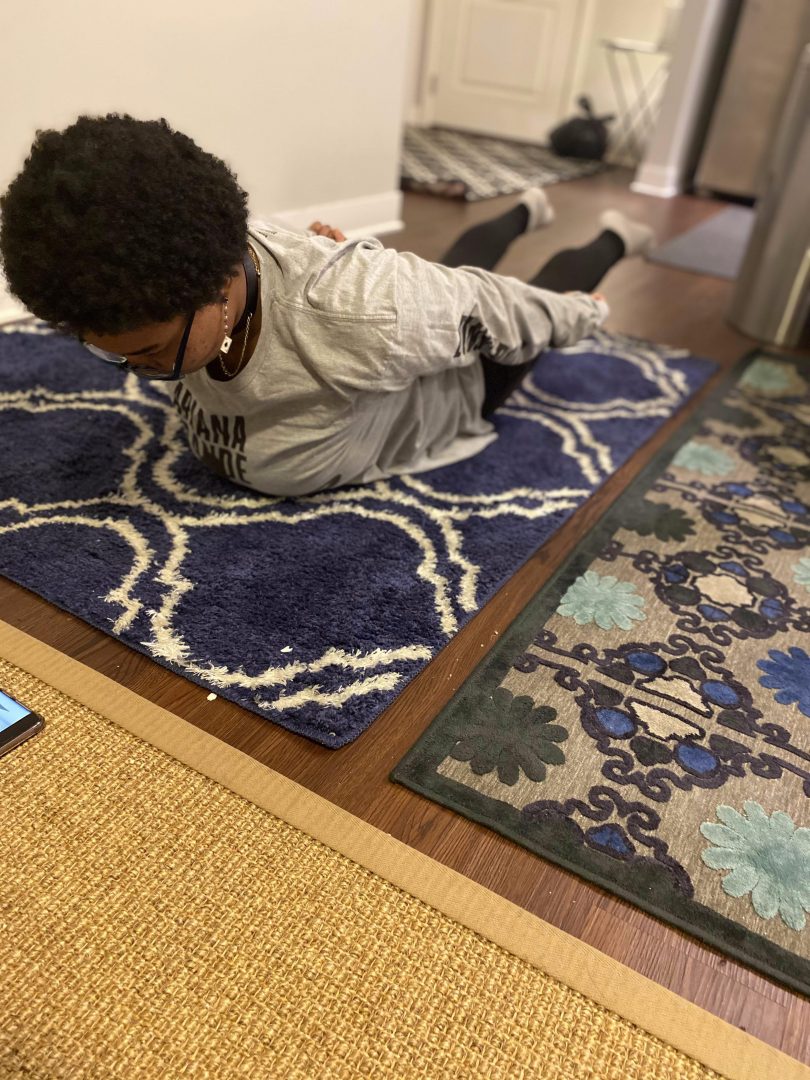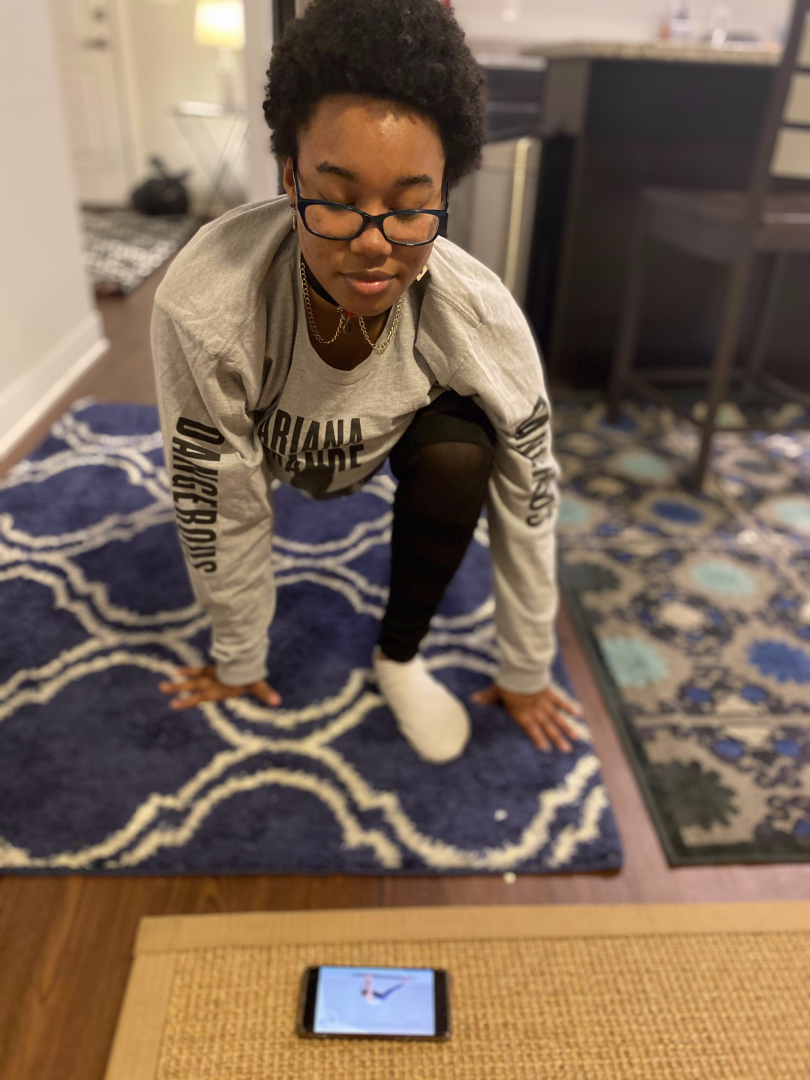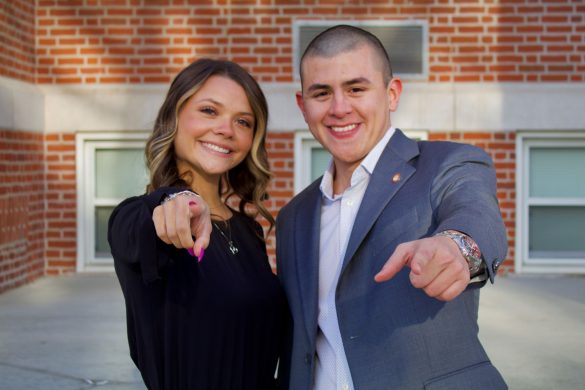Middle and high school gym classes taught us about fitness and health, but chances are if you didn’t participate in athletics, the bad habit of exercising only once in a blue moon started back when you were young and spry. Unfortunately, your body is not getting any younger, and the current pandemic does not encourage an active lifestyle. So the time to prioritize physical health is now. The compounding factors of age and COVID-19 protocols can make beginning your health journey seem like a steep hill to climb, but the scientific benefits of exercise should help coax you into a better lifestyle, for yourself and others.
There are many ways to stay healthy, even if we do have to sit in front of screens all day. Better sleep and more energy are just some of the perks of physical activity and should be driving factors to convince college students to treat their health like an important course. This one is just worth more than a grade or a diploma.
The University of California found that people’s smartphones recorded a decrease in steps from January to March of 2020, according to ACP Journals. While steps are not the most reliable indicator of health, the decrease suggests that the lockdown in March caused people to walk less during the day and lead to a more sedentary lifestyle since the pandemic started.
I know from personal experience how much I miss my daily walk to in-person classes. Although I have the opportunity to go to campus every day, my Zoom classes keep me paranoid that I’m going to miss something online if I’m not back at my place by a certain time. So not only has the lockdown generated these bad habits, but my exercise habits also have declined. I used to take daily walks to go to class, meals and water polo practice twice a week—and that was my routine for college. When COVID-19 hit, I didn’t get out of my apartment as much. I thought exercising meant I had to leave my living space when it didn’t have to be that way. If we start treating our physical activity like another class, then it won’t feel like a chore to remember but rather will be integrated into daily routines at least two or three times a week, like college courses.
I want to encourage others to adopt a healthy lifestyle, because my overall energy levels, motivation and health have declined since the pandemic. While I cannot scale that for context, gaining 20 pounds over the past year is a good indicator that something is wrong with my sedentary lifestyle. Looking at the benefits of exercise, like its mood-boosting qualities, health improvements and promotion of better sleep, as described by the MayoClinic, college students like me should look to get off their behinds and into an exercise routine to encourage a better lifestyle, at bare minimum. Exercise, according to the New York Times, also can help your body interact with itself better. Neurological connections are made faster, vision is better and organs work more efficiently, the Times wrote, which I believe can lead to a happier life.
The Centers for Disease Control and Prevention reported that adults need 150 minutes a week of exercise, or 30 minutes a day, five days a week. They also encourage moving more and sitting less, which can be difficult in the age of COVID-19, but there is a way to combat virus fatigue. Putting the scope of the virus and personal health into perspective, the time spent at home is time spent with oneself. Taking the CDC’s advice and working on oneself to return to a pandemic-free life feeling better can be a powerful formula for success. A great deal of motivation is needed for this, however, at least for me.


Changing old, entrenched habits can be difficult, but according to a 2017 Healthfully article, the immense pressure of college can negatively affect college students if they do not exercise regularly. Because their main focus is often not on exercise, college students may be less likely to prioritize exercise during college, according to the article. Studying, online classes, papers and so forth may make the time available for physical activity feel limited, but that doesn’t have to be the case.
I have found guided exercises on YouTube, such as yoga, a 30-day ab challenge and morning stretches, that have helped me exercise more regularly. Not only does yoga help improve strength, balance and flexibility, but it can also help ease arthritis and back pain, according to hopkinsmedicine.org, and college students need all the joint support they can get. (I’ve popped far too many joints for a person my age.) I have also purchased Just Dance and Ring Fit Adventure for the Nintendo Switch. If video games are a passion of yours, consider purchasing those as well. They are exercises, but made a lot more fun.
The University of Indianapolis also has a gym and a track available for students, even during COVID-19. While I worry about my personal health while exercising, I recognize that trusting the health checks and workers at the gym is the best option for my health, despite my virus anxiety.
Change is hard, but working now to achieve a healthy life later will be worth the effort. Healthy living accounts can be great motivators, too. A UIndy student who also is a personal trainer gives diet and weight loss advice and information and workout reminders at alissafarabaugh_fit, and uindycampusrec on Instagram provides workout routines, as well as fitness center hours, which can be helpful in planning one’s day.
Your lifestyle is important, and it’s in your hands to take care of yourself, so find something that inspires you to work out and take control of your health. Instead of saying you’ll make the change one day, make today the first day and stop making excuses. Sedentary lifestyles, if not changed, can lead to a longer period of hurt than a lockdown. Don’t quarantine yourself from exercise: it can help give you a long lifetime of happiness.








